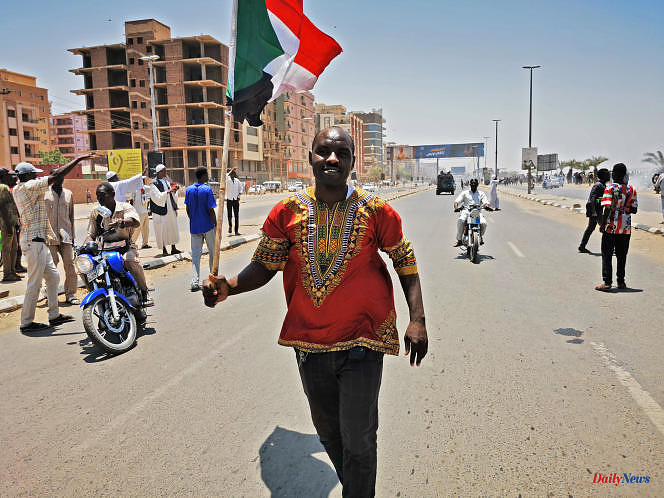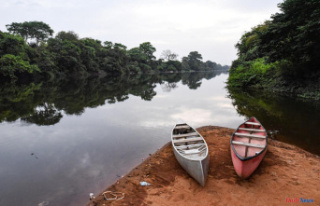The toll of the tribal conflict in southern Sudan that erupted in mid-July was revised upwards on Wednesday July 20. Inter-ethnic clashes left 105 dead and 291 injured last week, according to Blue Nile state health minister Jamal Nasser. "We cannot determine the exact number of victims, some corpses are still buried under the rubble of their homes," said Blue Nile Hausa tribal leader Mohammed Noureddine by phone. press event organized by his community in Khartoum.
After almost a week of gun battles, calm seems to have returned to this state bordering Ethiopia on Saturday. However, "Blue Nile residents are still being harassed," Abdulaziz al-Nour, a Hausa tribal leader from Khartoum, said at the same conference. Yet Mr. Nasser, contacted by telephone by Agence France-Presse (AFP) in Ed-Damazin, capital of Blue Nile State, pleaded that "all is calm now, but, he added, there remains the question of the displaced”. "We demand the return of the displaced to their homes," said Hafez Omar, tribal leader of all Hausa in Sudan. He also pointed to the responsibility of the Blue Nile authorities. "Government weapons were used," he said Wednesday.
It was over access to land that violence erupted on July 11 between the Hausa - one of the largest ethnic groups in Africa, present from Senegal to Sudan - and the Bartis clan, in the state of Blue Nile, bordering Ethiopia. But the violence has spread to several other states, the Hausa, one of the ethnic groups involved in the conflict, mobilizing across the country to demand "justice for the martyrs". The violence notably spread to the state of Kassala, further north, where on Monday thousands of Hausa set fire to public buildings. On Tuesday, thousands demonstrated in Khartoum, North Kordofan, in the Center, or in Kassala, Gedaref and Port-Sudan on the eastern coast, AFP journalists noted.
Hundreds of deaths in recent months
According to the UN, more than 17,000 people in Blue Nile state have fled their homes for fear of stray bullets, mostly women and children, several thousand of whom are now surviving in three schools in Al-Damazine. Located in southern Sudan, one of the poorest countries in the world, the state of Blue Nile is also deprived. The UN claims to have provided humanitarian aid to more than a third of the inhabitants there in the first quarter of 2022, or 563,000 people.
The state of Blue Nile has been plagued by a rebellion since 1983. The southern guerrillas have long been a thorn in the side of the dictatorship of Omar Al-Bashir, pushed aside by the army under pressure from the streets in 2019. For experts, the security vacuum created by the putsch led in October by the former commander of the army, General Abdel Fattah Abdelrahman Al-Bourhane, favored a resurgence of tribal violence in a country where every year hundreds of civilians die in clashes between herders and farmers for access to water or land, in a country where many weapons circulate after decades of civil war.
Tribal clashes have claimed hundreds of lives in Sudan in recent months, particularly in Darfur, in the west of the country, bordering Chad.












